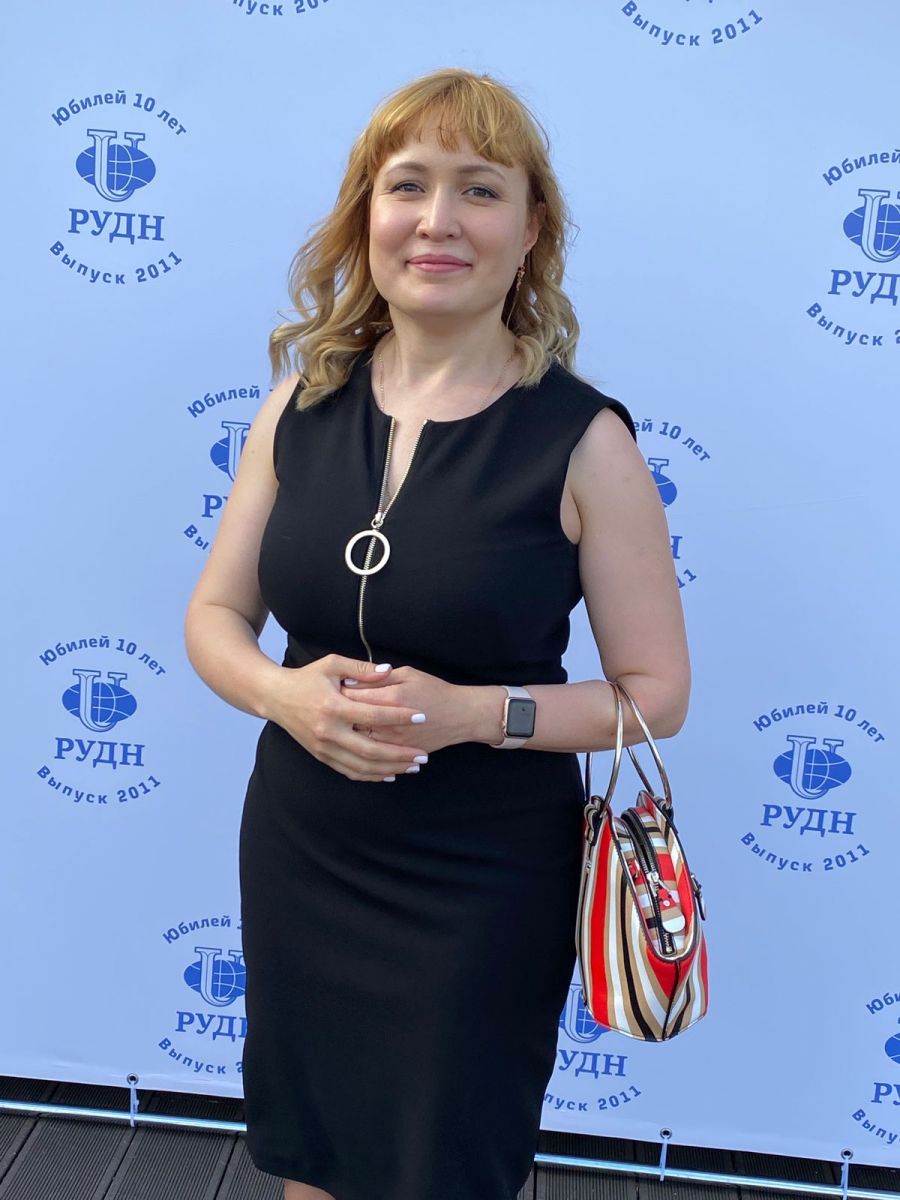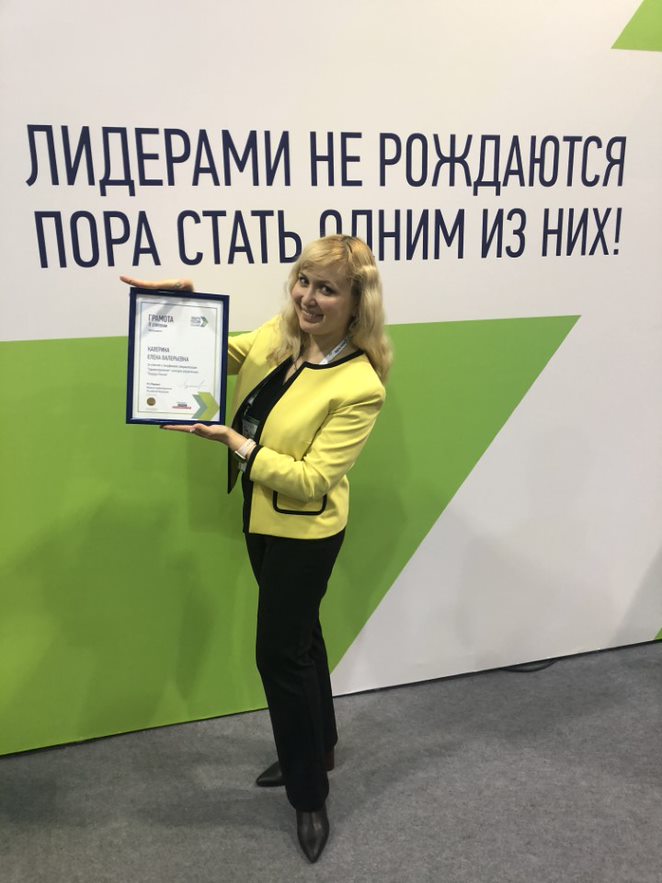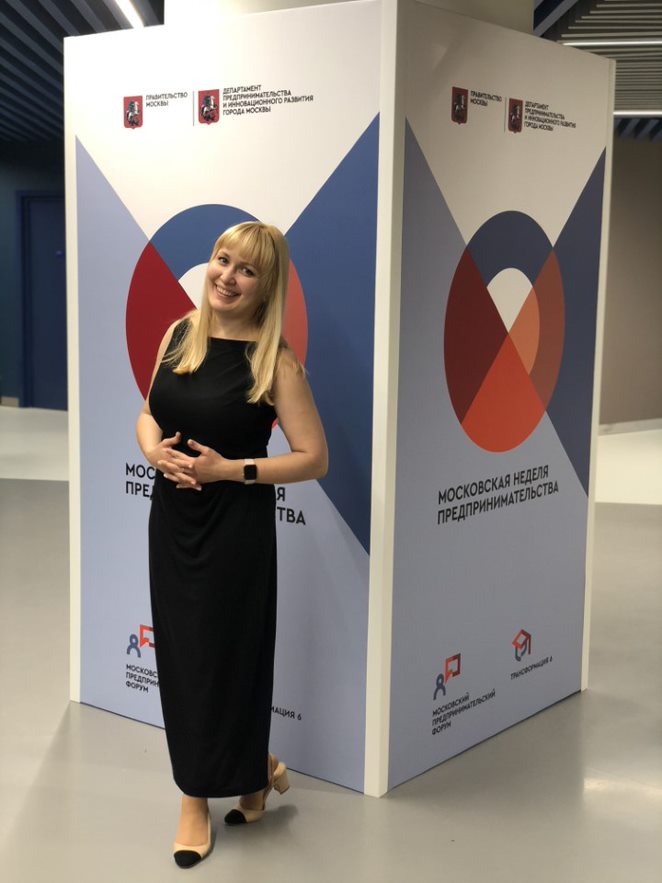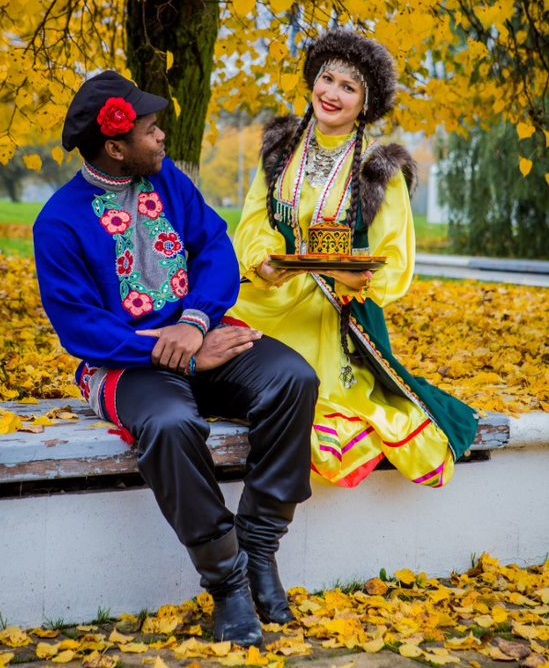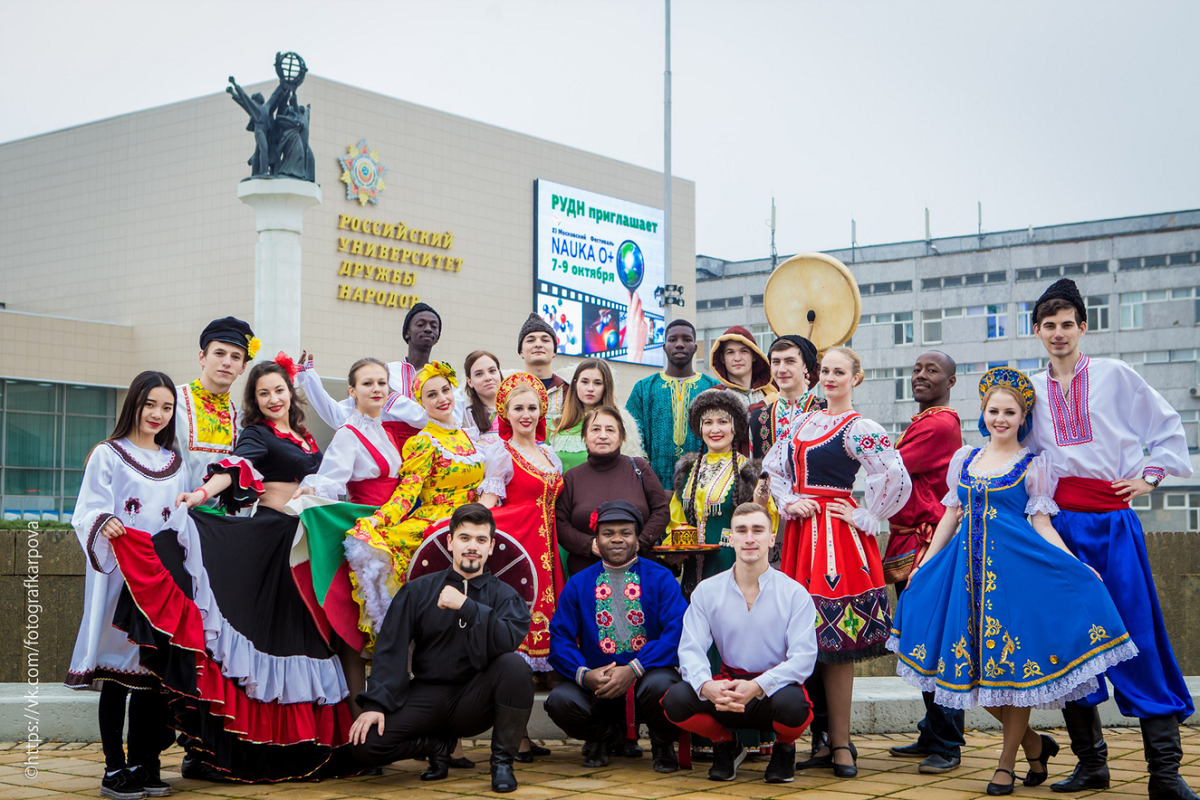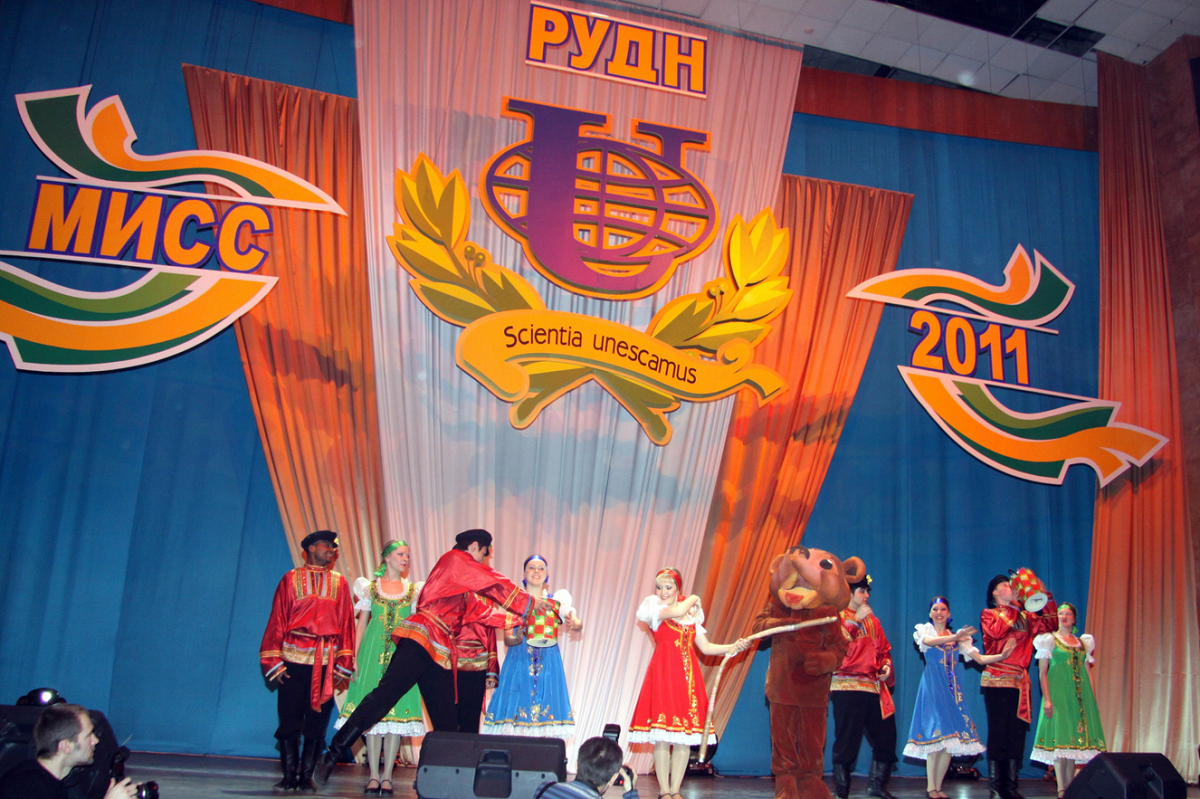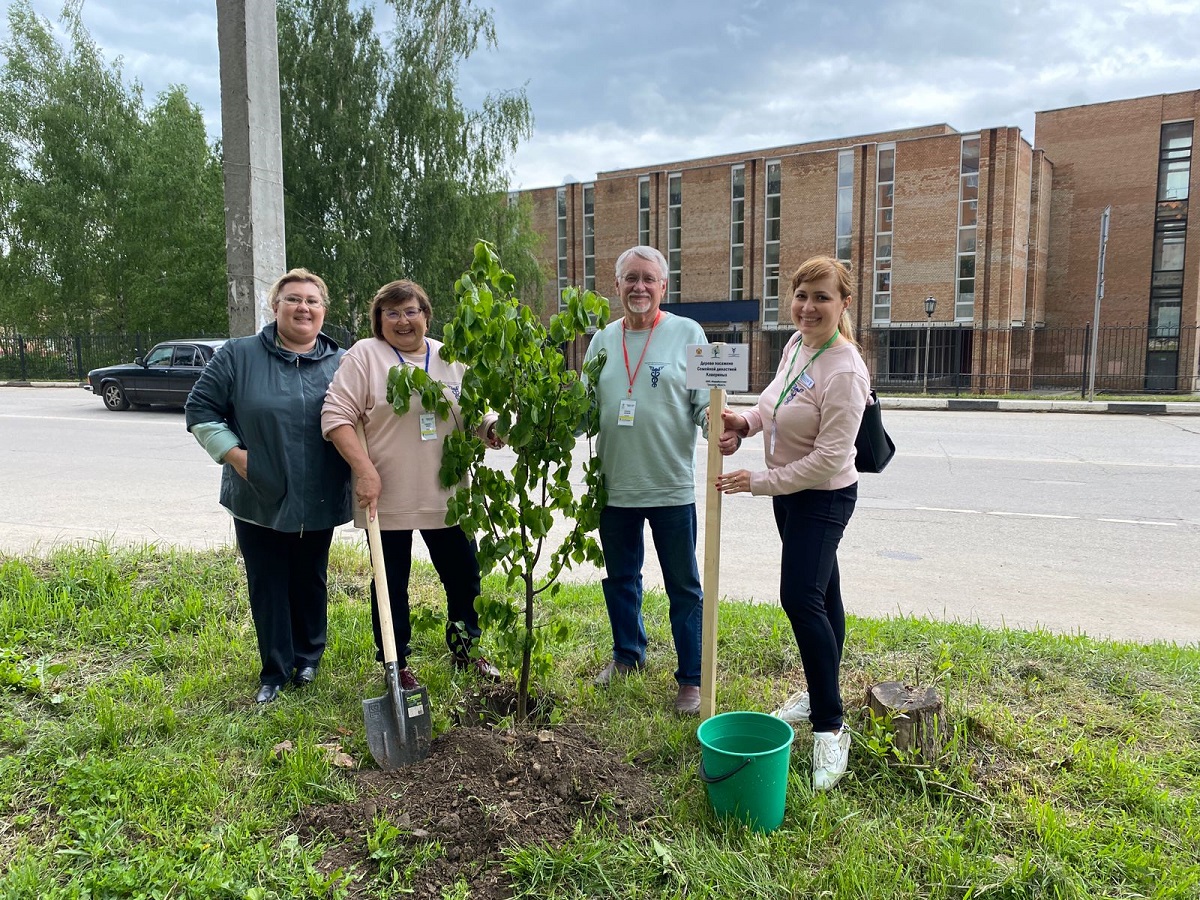“In RUDN University you can find everything in one place: uniqueness, universality and love for people,” Elena Kaverina, Associate Professor of the Institute of Medicine
Do you remember your first day at RUDN University?
It was September 1, 2004, we were at the student initiation ceremony: various ensembles performed on the stage. On that day, I realized that at RUDN University I would not only study, but also engage in creativity. This is how I came to dance at the “Rhythms of Friendship” and did it 13 years.
What were your favorite subjects?
Public health and healthcare organization, health economics, dermatovenereology, pharmaceutical technology, pharmacognosy, pharmacy management and economics. I come from Tula — there are many patients with skin diseases in the city. I’ve always wanted to understand why. I liked healthcare organization because it covers all areas of medicine. It is important to the GP, surgeon and dermatologist. I want to understand how to make our healthcare system better.
Where did you live during your student years? How did you get to the University?
From the age of 16, I lived alone in an apartment and traveled by trolley bus number 72. I took a seat, opened the atlas of human anatomy reading all the way.
Who was your academic advisor?
My first education is medical business, we do not defend a diploma. When I graduated from the university for the second time with a major in “Pharmacy”, I had scientific supervisors Svetlana Suslina and Viktor Vandyshev. From the fourth year I was engaged in scientific work at the Department of Public Health, Health and Hygiene with Anna Fomina and Dmitry Kicha. These people are my teachers, whom I consider my mentors.
You started working at the age of 16 in pharmacy. Why?
I started working even earlier, as a child. We have a family pharmacy business. Our company Pharmbytkhim LLC is one of the 100 leading family companies in Russia and is under the patronage of the President of the Chamber of Commerce and Industry. When I was little, I helped my parents: I printed out documents and ran errands. At the age of 16, I began to work officially. I went from an apprentice to the head of the medical and pharmaceutical department, now I am in charge of curating medical areas and scientific developments. Our company conducts wholesale and retail trade in medicines, we store vaccines against coronavirus infection (COVID-19) for the entire Tula region, we also have immuno-biological pharmacies.
How do you manage to combine work at RUDN University with teaching at the Department of Biomedical Disciplines and Pharmacognosy at the Tula Pedagogical University.
Sometimes it seems to me that there are a lot of jobs, but they organically fit into my life. For a long time I could not call RUDN University a job. After all, there is a stereotype that work is something forced. And I did what I love. They ask me: “If you had a lot of money and great opportunities, what would you do?” I always answer that I would do what I am doing now.
How to learn to combine everything? I don’t know, this is a RUDN University phenomenon. I am 100% a product of RUDN — all this social, public and scientific life. When I entered here at the age of 16, I found myself in such an environment where I studied, went to the Interclub and various clubs. This endless stream of activities has formed a model of life when you can do everything.
In Tula, I teach the history of pharmacy, practice of procurement and acceptance of medicinal raw materials, and at some point taught pharmaceutical chemistry. A few years ago, it was our family that initiated the opening of a pharmaceutical major in Tula. The city did not train pharmacists, and we were heavily dependent on graduates from other universities. We opened a direction in a medical college, and we helped start training of pharmacists at the Tula Pedagogical University. We lacked teachers — but no good deed goes unpunished. I had to lecture myself.
You are in charge of one of the professional student societies of the Medical Institute. Why did you decide to do this?
In 2021, we created a professional student association “Health Organizers and Leaders”. When I started doing research guidance, over time, more and more students began to come up to me. I realized that I could not cope with explaining everything to them one by one and decided to join them in a circle. This is how our association appeared. Today, my students win almost all competitions where they participate. Previously, these were students from English-speaking groups, now Russian-speaking guys have also been added. We have more than 40 winners of Olympiads and competitions.
What are the most significant victories of your students?
I remember well the first student victory when I was still a postgraduate student. They became the best in the annual university research competition. For me it was very significant, because it was the first time and because the work was in English. It was a novelty then, although today it has become commonplace. I also remember the victory at the conference in Hungary, at Semmelweis University. It was won by Namibian student Namvira Joannes Namvira Ditto (Medical Institute graduate 2019, General Medicine) with a report “The Kavango regions of Namibia: combating teenage pregnancy and its impact”.
You have a diploma in translation. Why should a doctor learn foreign languages? This is an additional burden, and studying medicine is already difficult.
When I chose a university, it was the diploma of a translator that was decisive. I did not plan to enter RUDN University. At the open day in another medical institute, we were told: “Your girl is smart, she does well at the Olympiads. Go to RUDN University, it is not far from here. They have Olympiads.” So I ended up at RUDN University. I learned about the translation diploma along with medical education — and decided to stay. A modern doctor has to read a lot of foreign texts, all significant studies are published in English, the main databases too. You understand most of the world — and you are understood. This provides opportunities for international projects: I took an exam in the Czech Republic, studied the organization of medical care in Portugal. Without a foreign language this would not have been possible.
I hope that soon I will speak not only English, but also French. RUDN is preparing an international project with the University of Cote d’Azur (Université Côte d’Azur) and a master’s program.
You have a social project on studying the prevalence and raising the awareness of patients with chronic non-communicable diseases. What is it about?
This project is a continuation of the research that I have been doing since my student days. I was interested in chronic skin non-communicable diseases. Then the spectrum expanded — it included, for example, ailments of the gastrointestinal tract and respiratory system. Now we are looking at what factors lead to the emergence of diseases not only in Russia, but also in Latin America, Africa, and Asia. We began to study a new coronavirus infection — the causes of a more severe course of the disease, and effects of concomitant diseases.
For 13 years you danced in the “Rhythms of Friendship” and performed in the Kremlin. Why do you still dance?
“Rhythms of Friendship” is my second family. The head of the team, Valentina Ryazanova, is my second mother. My best university friends are the Rhythms dancers. Today we are in different countries, but we continue to communicate. A few years ago I was in Sri Lanka, where I was met by Abdul, a graduate of Rhythms. We danced a Russian quadrille on the shores of the Indian Ocean, saying hello to our team.
We traveled to France several times, to India, performed in Russia, performed a lot in the State Kremlin Palace. “Rhythms of Friendship” is one of the best memories from student life. This year the team is turning 50 years old, for the anniversary concert I am training the new team a Bashkir dance.
Imagine that RUDN University is a person. What would you give as a birthday present?
As a child, I loved making handmade gifts. You remember it for a long time. For RUDN University, I would write a book about it: about the bright moments associated with it, about what it gave me and my friends, the whole world. And I want to give it new talented students who will become part of the very RUDN University, which the whole world knows about.
What quality do you value most in RUDN University?
At RUDN University you can find everything in one place: uniqueness, universality and love for people. The slogan “Discover the world in one university” is about RUDN University.
On a Sunday winter day at the exhibition named “Russia” RUDN University gathered students, partners, colleagues, and organized lectures under the title “We are different! We are equal! We are together!” The event took place in Pavilion 57 on the platform of the Russian Society “Znanie”. And on this day the hall was jam-packed.
The event was attended by more than 350 students from Russia, Bahrain, Egypt, Yemen, Libya, Mauritania, Morocco, and Tunisia. The students organized an exhibition of the fraternity, introducing the guests to national dances, treating them to Algerian coffee, Arabic sweets and talked about the culture and history of the people of the country. The week ended with a futsal tournament.
On the eve of the New Year, we are summing up the past 365 days and set new goals for the next year. Whatever we do — study, work or do research — we intend to conquer even higher peaks.
